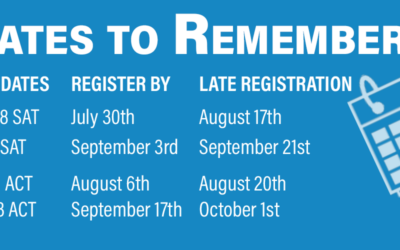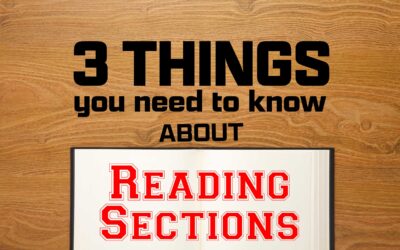It has been a pretty crazy season for students and parents as they try to cope with all of the changes due to the pandemic as well as plan for the uncertainty of the school year ahead. At least a few things seem set in stone now and that is the next SAT’s and ACT’s which are set to be on August 28th and July 13th, respectively.
While some students did remote learning to finish off the school year, I think it’s fair to say that many students missed out on a lot of lessons that would have been more beneficial had they been in school, lessons that are especially beneficial for the upcoming SAT/ACT. I want to highlight a few subjects that students should consider brushing up on before they take their tests in the upcoming months.
Algebra II
Algebra II is one of the largest math subjects represented on both the SAT and ACT, responsible for anywhere between 50%-75% of the math questions. This poses a considerable challenge for students who missed out on half a year of Algebra II lessons due to the pandemic. Even with remote learning available, it is unreasonable to assume that most students were able to effectively teach themselves half a year of new math. In fact, from the feedback I have had from my own students, much of the remote math learning was described more as “busy work” that did not cover enough new concepts. That is consequential considering that the tail end of Algebra II focuses on key SAT/ACT concepts like factoring, solving and graphing polynomials, basic trigonometry, and advanced word problems involving multiple variables. Improving your Algebra II skills is probably the most important thing a student can do to prepare for the math portions of the ACT/SAT.
English/Reading
Recommending ways to improve a student’s reading comprehension and English ability has always been tough, because I try to find the most efficient method that will work for the most people. From my experience, the solutions are different for different people. I will highlight a few options below:
- The best option for improving Reading Comprehension skills is to simply practice reading comp exercises with follow up questions. There are numerous books and exercises available to help with this. This method can also be quite frustrating if students feels like they’re reading endlessly and not understanding anything. A tutor can really help the most in this area to assist students with picking apart the readings and focusing on the key elements of a passage.
- A less time-intensive option would be to simply devote 30 minutes a day to reading anything, whether it be a book, article, short story, etc. Reading consistently will help to also increase reading speed.
- Memorizing lists of vocabulary terms no longer works as well as it used to on the older versions of the tests. My best recommendation would be for students to actively look up words they do not know. Another option is to get vocabulary builder workbooks, but unless students are going to do the work regularly, it can be a forgettable exercise.




